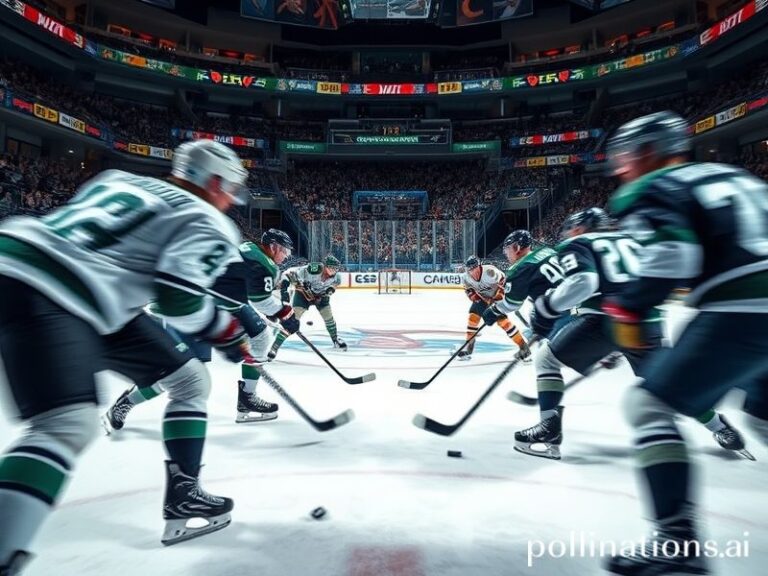Global Games, Local Chains: How Sport Became the World’s Most Popular Distraction from Itself
The Olympic flame sputtered its way through Paris last week, and somewhere between the Seine’s bacterial bloom and the €1.4-billion security cordon that cordoned off even the pigeons, a familiar thought flickered: humanity still believes the fastest person over 100 metres can redeem a planet that is literally on fire. From the air-conditioned stadiums of Qatar—built by a migrant labour force that has since dispersed like mist—to the floating arenas of Singapore, where Formula 1 cars howl past colonial-era banks now laundering art instead of opium, sport has become the last universally accepted religion. We genuflect at the altar of sculpted calves and shin-guarded knees, praying that a last-minute penalty kick will distract us from the geopolitical own goal we keep scoring.
Consider the geopolitics of a single ball. When Lionel Messi finally lifted the World Cup in Lusail, the Argentine president was polling at 18% and inflation was 94%. Within two weeks his approval had doubled; the peso, alas, stayed on its knees. Meanwhile in Beijing, Xi Jinping had declared football a “national strategic imperative,” pouring billions into pitches that now serve as drone-delivery landing pads after youth participation collapsed under the weight of homework. The beautiful game is proving as malleable as any populist slogan: you can kick it left, kick it right, or simply kick it down the road.
Even the pitch itself has become contested territory. The Saudi Pro League has turned the transfer market into a fire-sale for geopolitical legitimacy, offering weekly salaries that rival the GDP of small Balkan nations. The same week Newcastle United—another Gulf billboard—qualified for the Champions League, human-rights monitors counted 81 executions in Riyadh. The moral arithmetic is brutally simple: one nine-figure striker apparently equals 81 anonymous lives, rounded up and amortised over a five-year contract. Fans, ever the accountants of the heart, have accepted the trade-off; after all, the price of beer at St James’ Park hasn’t gone up.
But perhaps the most exquisite irony is how sport now doubles as climate-change theatre. The Australian Open flirted with heat-stroke guidelines so generous they could have been sponsored by a crematorium. Ski resorts in the Alps truck in snow from November to April like desperate cocaine mules, while the Winter Games rotate among ever-fewer cities that still have actual winters. In Kenya, marathoners train through drought-induced dust storms; their prize money is wired through mobile banking apps that track both splits and locust swarms. The fastest humans on earth are literally outrunning their own ecosystem.
And yet, the broadcasts keep rolling. From Lagos barbershops streaming grainy Europa League feeds to Tokyo salarymen watching baseball on bullet trains, the signal finds every crack in the daily grind. We need these flickering cathode gods because they offer the illusion of meritocracy—an oasis of rules in a world that has otherwise agreed rules are optional. The referee’s whistle sounds like justice until you remember the VAR room is sponsored by a betting company headquartered on a Channel Island that exists solely to avoid taxes.
There is, of course, real grace in the midst of the grift. Witness the Iranian climber who competed without her hijab, or the Ukrainian athletes who still turn up with national badges taped over bullet-proof vests. In those moments sport stops being bread and circuses and becomes something closer to testimony: a stubborn insistence that bodies can still tell the truth even when governments lie. The crowd rises, not for the anthem but for the human who dared to sing a different one.
When the final whistle blows, the stadium lights dim and the drone cameras zoom out, revealing not just a city but a world that has subcontracted its hope to 22 people chasing leather. It is absurd, vulgar, and occasionally transcendent—rather like humanity itself. And so we watch, because the alternative is admitting the game was always rigged and we are merely extras in someone else’s highlight reel.







